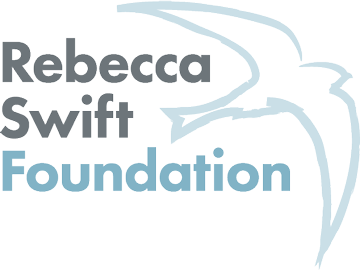I found myself in conversation with another editor recently and realised that despite being a published poet herself, she didn’t send work out to magazines. I asked why. ‘Well, apart from the one I edit, none of them are any good.’ We both laughed at this and I managed to not indignantly exclaim Hold on, what about PBLJ?! It was tongue-in-cheek and a little mischievous, but it was also refreshingly nonchalant about amassing magazine credits, and it made me want to pose the question: Why do you send poems to magazines?
There are some obvious answers. Poetry magazines have always been at the cutting edge—last month marked a 100 years since ‘The Waste Land’ first appeared in The Criterion. They allow writers to get new work out before and between full-length books. They help writers to develop an audience of readers (albeit small). They’re more willing than book publishers to bring the innovative, experimental, and unexpected to print. They serve as a testing ground. More importantly than all of that, they’re an arena for debutantes to start out—it’s common knowledge that if you hope to achieve full-length book publication as a poet, you ought to start out with magazines and build a reputable publication history to give you a chance with a publisher. Having a poem accepted in a magazine is a source of validation too.
Those are all good reasons but it’s still worth asking oneself why do I send poems to magazines? Many writers expend a significant amount of energy on submissions. Some are incredibly organised and methodical about it and keep spreadsheets to track each poem. End of year lists will be upon us soon and writers will recount their successes; often with many dozens of poems published in a long list of magazines. It’s become a game or a challenge for others to collect rejections. This tradition started out as a way of putting a positive spin on the sometimes painful, sometimes discouraging fact of rejection. Rejection is proof I’m trying; I’m not giving up. Now it seems a boast of not only resilience and determination but of sheer industriousness; the aim is to achieve one hundred rejections a year. I can see that goal as nothing but a waste of precious time for both writers and editors. Even in such a niche area of publishing where the numbers are never commercially viable, writers still seem to prioritise quantity over quality to the point of striving for numbers even in rejection.
As we approach the season of taking stock of achievements and setting goals for the New Year, I want to suggest something that may seem strange coming from a poetry magazine editor: publish less. Next year, send out fewer poems. Rack up fewer rejections. Narrow the list of magazines that you’d like to appear in. Writing, developing your craft, having something you feel compelled to put to paper, to create, is a separate endeavour to ‘being published’. It is worth considering afresh why you really want to be published—and where—and if the game of sending out never-ending submissions to any and every magazine fulfils the purpose you are trying to achieve; whether it is the best use of your finite resources.
If publication was only about getting work out into the world and finding readers, there are more effective ways of doing that than languishing for months in slush piles—poems can be self-published, shared on Instagram/YouTube/Twitter, a personal blog. Of course, none of that carries the prestige of magazine publication which indicates the poem has been judged as good enough by an editor and been through some editorial process but once you have been through that a few times, why continue to make a time-consuming occupation of it? Being published in The Jellybean Lasagne Quarterly doesn’t really provide meaningful validation as a writer when you know you’ve never willingly sought it out to read yourself, don’t know who edits it or value their work and platform personally.
Editors are above all readers. Writers seeking to be published, and published well and meaningfully, should approach submissions as readers too. Which magazines do you read and enjoy? Which magazines that you read can you imagine your work fitting into aesthetically? Those are the magazines to send your work to. If you don’t read a magazine or have an interest in it, is it worth trying to place your work there? Not everyone can afford to purchase many magazines regularly. That’s okay, choose one or two subscriptions or single issues and change them each year until you find what suits you. Be focused and target the publications that genuinely matter to you as a reader. If you were reading your cover letter, what would make it a good introduction to you and your work, what would grab your attention and hold it for the poems that follow? You don’t need to flatter or fib to an editor, you just need to be polite, know their publication, and be straightforward about your own work by contextualising it rather than paraphrasing or making any claims for it.
There’s a lot to be said for taking time and moving slowly. If you can leave a poem long enough to encounter it yourself as a new reader, you might be a better a judge of whether it should be sent out for publication at all. You needn’t seek to publish every poem you write. Some work is for the drawer, some work is for an audience of one or two friends, some work is better within a book, some work is for the trash and, if you’re lucky, a key to unlock the next piece of writing. If you’re going to submit a poem, prioritise magazines you truly value whether that’s because of their reputation, the fact they pay, or because you’re an avid reader yourself.
Submissions often involve protracted waiting times; this is just an unfortunate fact of publishing and made worse by low-quality simultaneous submissions on the part of writers. Waiting for months on end only to be rejected can feel frustrating and disempowering which is another reason why redirecting that effort and energy can be more fruitful. Are there other things you could do that would put you in greater control of how your work is received? Working collaboratively with other writers on a project of your own devising perhaps? A zine, a reading series, a writers’ collective that produces an anthology; there are endless ways to develop your body of work and create the taste and audience for it.

Naush Sabah is a writer, editor, critic, and educator based in the West Midlands. In 2019, she co-founded Poetry Birmingham Literary Journal where she is currently Editor and Publishing Director. The journal is a biannual print periodical of contemporary poetry and poetry criticism, described by the TLS as ‘intellectually lithe and provocative’ with a ‘dynamic and incisive critical section’. Naush also co-founded Pallina Press where she is Editor-at-Large and she currently serves as a trustee at Poetry London. Her writing has appeared in The Poetry Review, the TLS, PN Review, The Dark Horse, Modern Poetry in Translation, and elsewhere.
